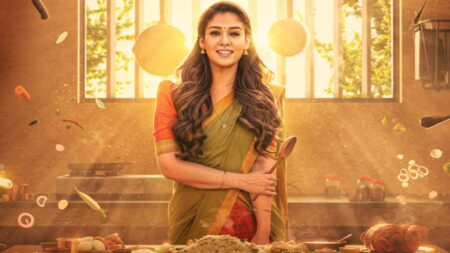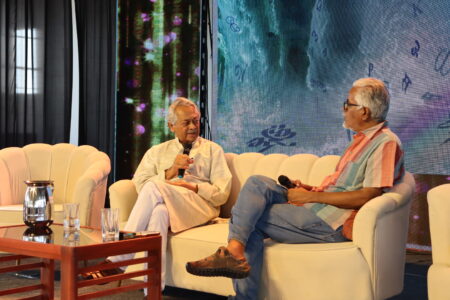A film enthusiast’s guide into the IFFI and IFFK. What makes the cut and what not, and why
The just concluded International Film Festival of Kerala (IFFK) is a very important event in the Indian Film Festival Calendar. This international festival from a tiny state just concluded its 23rd edition. This edition of IFFK was special since there were plans to cancel the event in the aftermath of one of the worst floods the state had seen. The festival was conducted with a shoe string budget, raised delegate fee and in the initial days many feared that it won’t be able to bring the best of World Cinema given how constrained the budget was. This apprehension lead to many film lovers from the state attending the Goa festival (International Film Festival of India). In contrast, the Goa festival has more money and glamour. But many film lovers from Kerala, especially the festival buffs wear a secret pride about IFFK which makes one wonder what makes IFFK different.
Delegates’ festival
Kerala’s film festival can be called the delegate’s festival. One can say IFFK rolls out the red carpet to its delegates and it is perhaps one of the most delegate friendly festivals around. In Goa, delegates are just part of the show. The red carpets all across the venue literally push the delegates outside. Even after online booking was introduced, printed tickets had to be collected by the delegates to get into a show. The number of counters to collect the tickets were first reduced and then moved to remote corners of the venue. Sometimes, the delegates have to skip one show, just to collect the tickets. Come to IFFK and you have an end to end online experience. You book the tickets using the app and your entry is confirmed by the scanner at the theatre entrance. The heightened security measures at IFFI means that delegates cannot carry water or even a power bank inside the theatre. Given the high profile attendees of IFFI, these security arrangements are probably justified. However, normal delegates find it a big annoyance.
Years back, the Goa festival offered food stalls near the theatres where delegates could find tasty food without burning their pockets. Those days are gone and unless you venture out of the venue, you can’t find food that’s reasonably expensive. Given the location of theatres, IFFK allows the delegates to eat a proper meal and still catch 4 to 5 shows in a day, especially for those who love marathon movie viewing during festivals. The greater restrictions at IFFI also means that delegates cannot carry any eatable or drinking water. IFFK provides drinking water at all venues while IFFI is hardly bothered about it.
Scheduling clashes are way less in IFFK compared to IFFI. IFFK schedules appear to be done by someone who is aware of the movies and avoid clashing. IFFI pushes most of the lengthy movies for the night shows regardless of the director and many delegates miss out on the movies which are screened well past 10. IFFK provides the complete schedule a couple of days before the festival while at Goa you won’t have the schedule for the second half till the second half begins. This really upsets your plans since you do not know if there is an additional screening of movie that you have missed. Even this year, IFFK was able to run the full schedule despite missing out on Tagore theatre (the Kala Academy equivalent of IFFK) for a couple of days. This year IFFI organisers could provide the second half festival schedule only two days before the festival ended. For a festival that has much more money power and manpower, this trend is disappointing.
National anthem
A court verdict made it mandatory to play national anthem before every movie screening and there were a lot of questions about how that will be implemented during film festivals. Festivals in India adhered to the court verdict and played national anthem before every screening. It really was an intriguing sight to watch delegates stand up to national anthem and then watch films which ridiculed jingoism, mindless nationalism and state power.
A few months ago, the court changed its decision making anthem mandatory and said it’s optional to play the anthem before screening. IFFI took the optional and made it mandatory while choosing to play the national anthem for every screening. It was interesting to see how IFFK would respond to the court decision. True to its character, IFFK decided to do away with this unnecessary practice of singing national anthem. Festivals in India now have a brief chant of ‘Bharat mata ki jai’ soon after National Anthem is rendered. IFFK released those 53 seconds and gave it back to cinema preventing another few seconds of ‘Bharat mata ki jai’ in the process.
Film selection
IFFK shows lot of maturity in film selection and this is one reason why delegates all across India are attracted to this festival. A long time festival buff once commented that Goa and Trivandrum festivals should be in your calendar if you are serious about covering the entire spectrum of world movies. He was very annoyed about the changing character of Goa festival and said he was glad to see that IFFK was keeping its character despite the changing environment in the country. According to him, MAMI festival in Bombay could soon replace IFFI for him, but he is yet to find a replacement for IFFK. Such is the place that IFFK holds which IFFI hasn’t been able to achieve despite entering its 50th anniversary.




